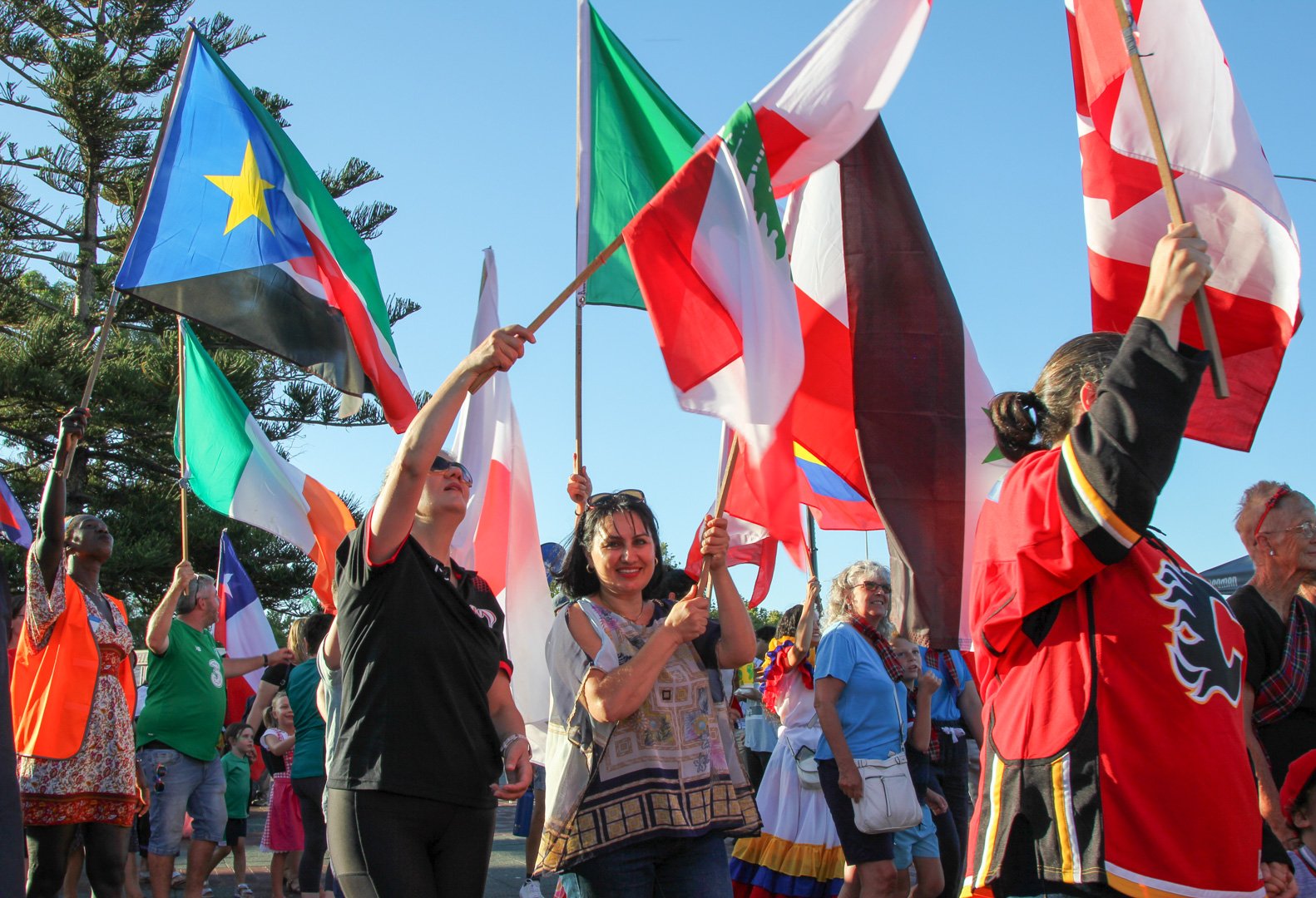
Upcoming events.

Ashura
For Sunni Muslims, marks Noah's departure from the ark and the exodus of Moses from Egypt. For Shia Muslims, it marks the anniversary of the martyrdom of Prophet Muhammad's grandson Hussein in Karbala.
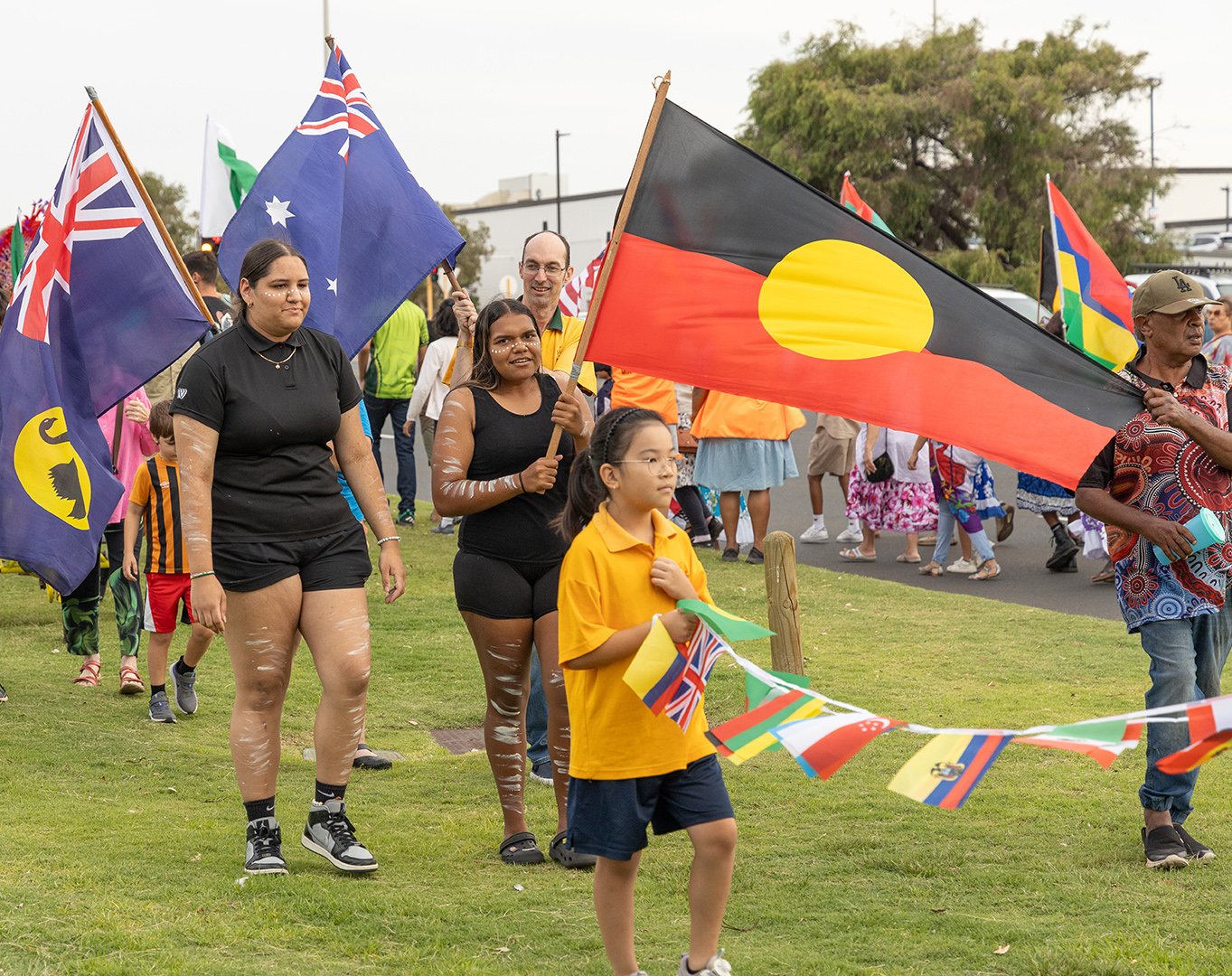
Naidoc Week
Celebrating Aboriginal and Torres Strait Islander history, culture and achievements.
NAIDOC Week is an Australian observance lasting from the first Sunday in July until the following Sunday. The acronym NAIDOC stands for National Aboriginal and Islander Day Observance Committee, originally National Aborigines and Islanders Day Observance Committee.

Asalha Puja Day
Or Dhamma Day celebrates the first teaching of the Buddha, commemorating the first sermon delivered by the Buddha after his enlightenment.

Naadam Festival
A feast for the senses filled with culture and pageantry, the Naadam Festival is Mongolia's biggest celebration of the year.

Al Hijri - Islamic New Year
Muharram is the Islamic Calendar’s first month of the year and is the second holiest month after Ramadan.

National Aboriginal & Torres Strait Islander Children’s Day
National Aboriginal and Torres Strait Islander Children’s Day (NAICD) is a celebration of Indigenous children. NAICD was first observed by the Secretariat of National Aboriginal and Islander Child Care (SNAICC) in 1988.

International Day of the World’s Indigenous Peoples
The United Nations’ annual International Day of the World’s Indigenous Peoples encourages people to spread the United Nation’s message on the protection and promotion of the rights of indigenous peoples.

Raksha Bandhan
Raksha Bandhan means bond of protection. This Hindu festival honours the love between brothers and sisters and is marked by the tying of a rakhi thread by the sister on her brother’s wrist.

Krishna Janmashtami
One of the most important Hindu festivals, this day celebrates the birthday of Lord Krishna, believed to be the eighth reincarnation of Lord Vishnu, who gave the vital message of the Bhagwat Gita - the guiding principles for every Hindu.

Feast of the Assumption of the Blessed Virgin Mary
The Christian feast day of the Assumption of Mary celebrates the belief that God assumed the Virgin Mary into heaven following her death. The Assumption signals the end of Mary’s earthly life and marks her return to heaven to be reunited with Jesus.

Australian South Sea Islanders National Recognition Day
In 1994, the Commonwealth Government officially recognised Australian South Sea Islanders as a distinct cultural group. A formal Recognition Statement followed this by the Queensland Government in September 2000.

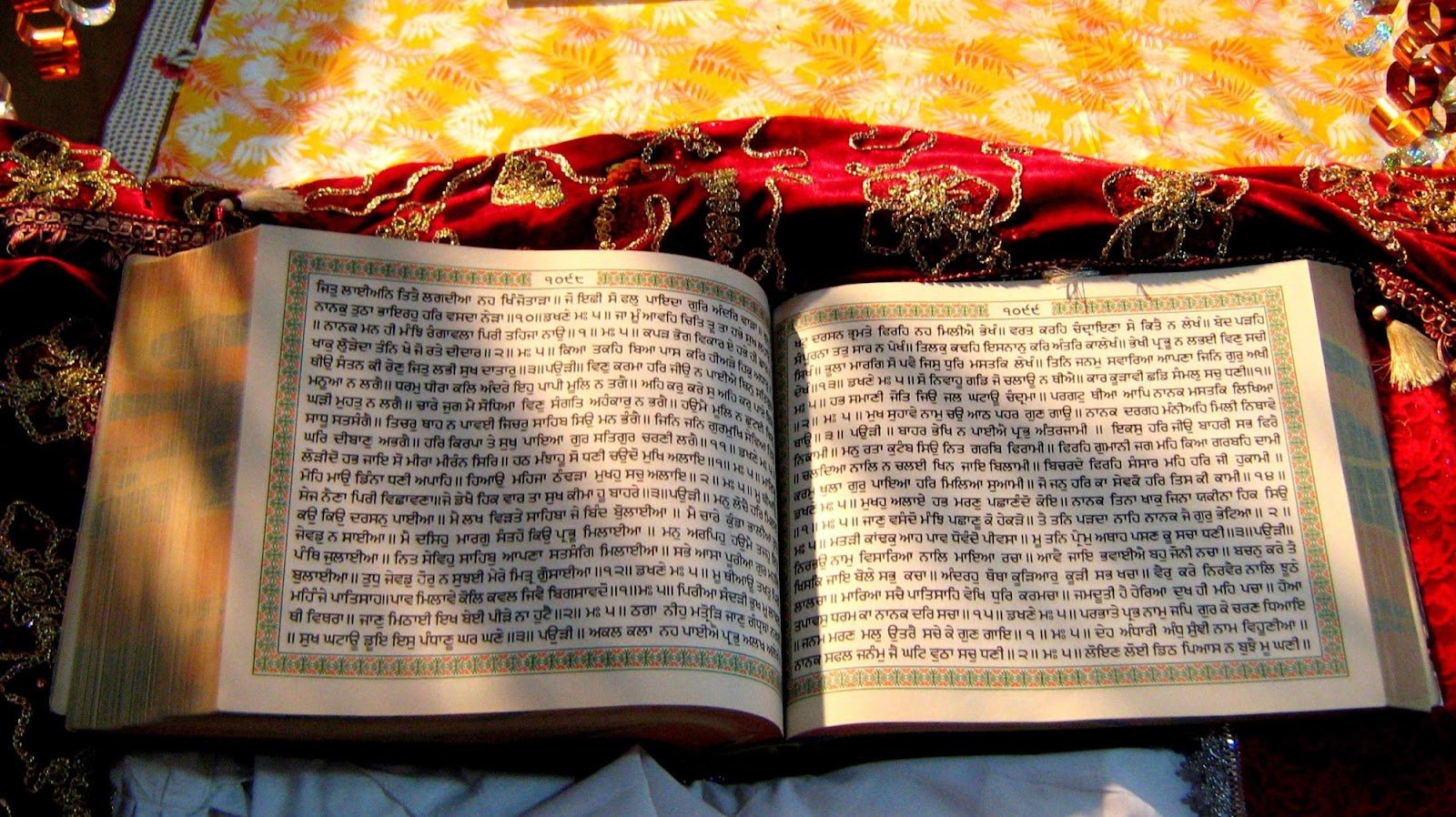
Inauguration (Gurgaddi) of Guru Granth Sahib
This day commemorates the eternal installation of the Sikh Holy Scripture referred to as Guru Granth Sahib or Adi Sri Granth Sahib Ji. Sikhs regard and respect the Holy Scripture as their living Guru.

Birth of the Prophet Muhammad (Mawlid Al-Nabi)
The Prophet Muhammad’s birthday is commemorated in most Muslim-majority countries and is usually marked by prayers, carnivals, fairs and public processions.

Nayrouz (Coptic New Year)
The Nayrouz feast commemorates martyrs and confessors within the Coptic Orthodox Church. The day marks the start of the Coptic new year and its first month.

Ethiopian New Year (Enkutatash)
Ethiopian New Year, Enkutatash signifies new beginnings and the end of the rainy season. Celebrations include traditional songs, a meal of chicken stew and injera, and gatherings around bonfires.

Australian Citizenship Day
Citizenship Day was introduced in 2001. It is an opportunity for all Australians to celebrate and value Australian citizenship, the peaceful, prosperous and inclusive society we share, and to reflect on our role in building our nation and shaping our country's future as proud Australian citizens.

Oktoberfest
Oktoberfest is the world's largest ‘Volksfest’ (folk festival), held annually in Munich, Germany. An important part of Bavarian culture since it was first held in 1810, other cities worldwide have celebrated Oktoberfest festivities modelled on the Munich event.

Dashain
Dashain is the most important festival for Nepalis. It is a celebration of good prevailing over evil.
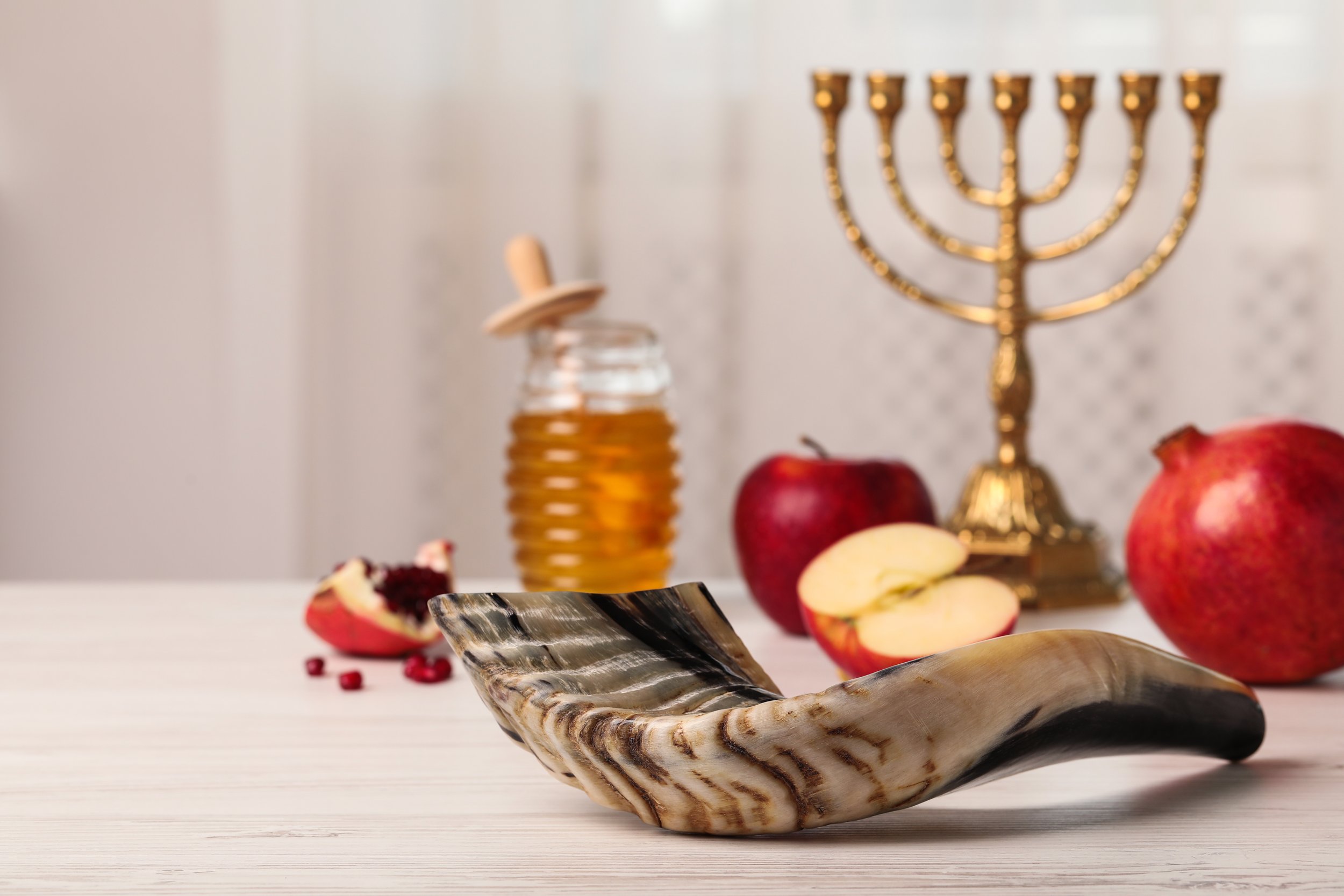
Rosh Hashanah
Rosh Hashanah, the Jewish New Year festival, commemorates the creation of the world. Customs include the blowing of the Shofar, a ram's horn trumpet, and the dipping of apples in honey as a symbol of the sweet New Year ahead. Work is not permitted on this day.

Durga Puja
Durga Puja is an annual Hindu festival that reveres and pays homage to the Hindu goddess Durga. It is popular and traditionally celebrated in the Indian states of West Bengal, Assam, Odisha, Tripura, the country of Bangladesh, and in the Mithilanchal regions of Bihar and Nepal. It is marked with worship rituals, performance arts, gift giving, family visits, feasting and public processions.

King’s birthday (WA)
Celebrates the King’s birthday in Western Australia. Each year the governor of Western Australia declares the day the State will observe the King's Birthday.

Yom Kippur
This holiest day of the Jewish year is observed with fasting and repentance. Many Jews will refrain from work and attend synagogue services

Vijay Dashami (Dussehra)
This Hindu festival marks the triumph of good over evil. The celebration of Dussehra concludes the festival of Navaratri, which extends over several days.

Gandhi Jayanti
This day commemorates Mahatma Gandhi's birthday. It is marked with a prayer for peace, ceremonies and events throughout India. The United Nations has further declared this day the International Day of Non-Violence in honour of Gandhi’s philosophy of non-violence (Ahimsa).

Chuseok
Chuseok is a special holiday in Korean culture with roots in celebrating good harvest, family and the importance of the full moon as a symbol of harmony and the hope for good fortune.
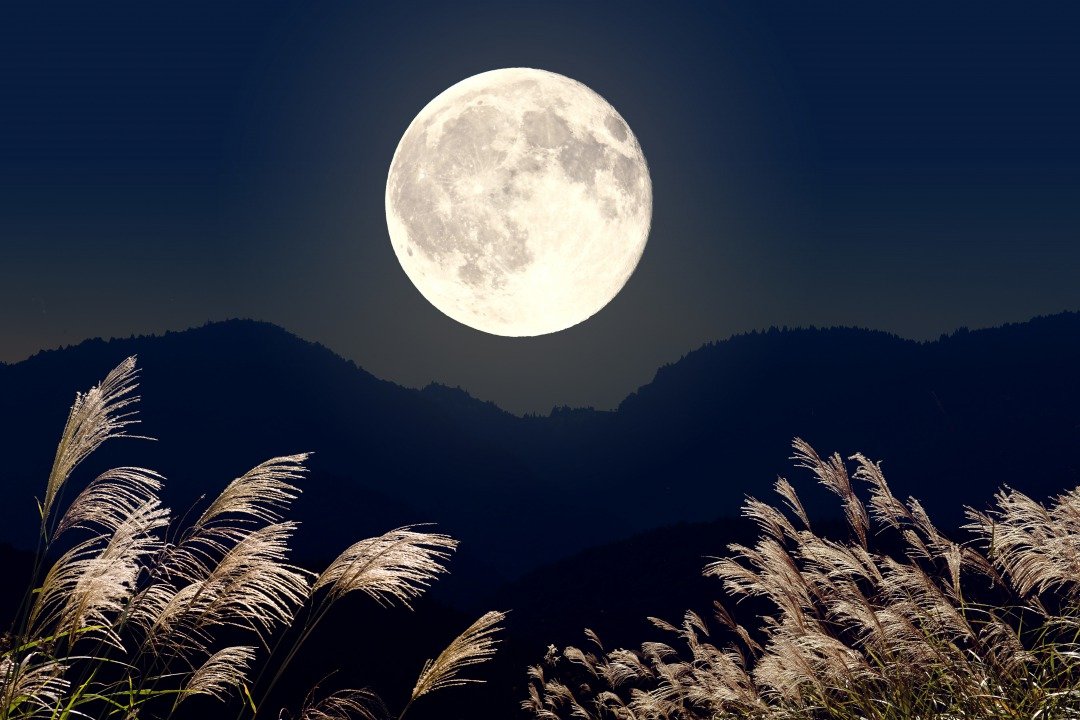
Tsukimi
Tsukimi is a special holiday in Japanese culture that employs the symbolism of the full moon to celebrate togetherness and hopes for good fortune.

Mid-Autumn (Moon) Festival
The Mid-Autumn Festival is a popular East and South East Asian celebration of abundance and togetherness, dating back over 3000 years. The traditional food of this festival is the mooncake, which has different variations depending on the country.
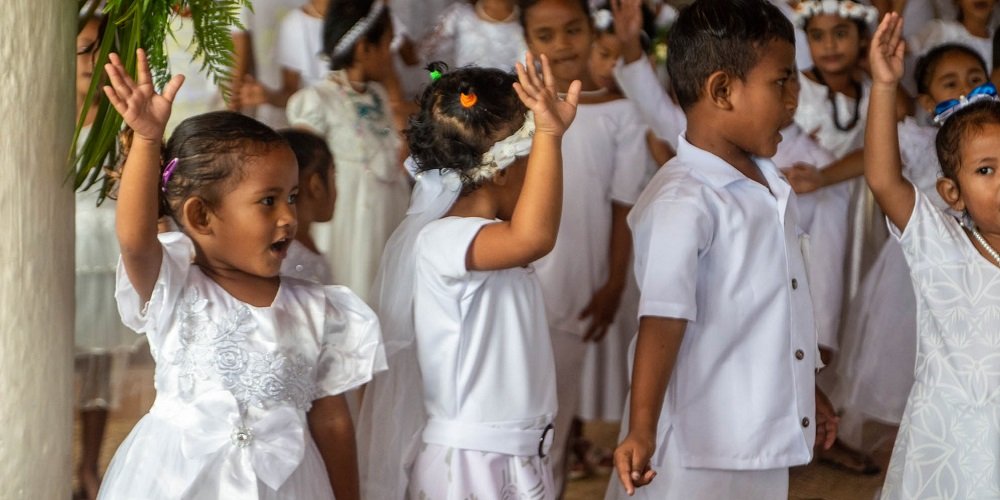
White Sunday
White Sunday is a day when childhood is celebrated in Samoan Christian communities worldwide.

Simchat Torah
Simchat Torah is a celebratory Jewish holiday that marks the completion of the annual Torah reading cycle. Simchat Torah means ‘Rejoicing in the Law’ in Hebrew. Special attention is given to children who join the celebrations with flags and singing.

Deepavali (also known as Diwali and Tihar or the Festival of Lights)
Hindus, Sikhs, and Jains celebrate Deepavali (Diwali) or the Festival of Lights, which celebrates the victory of good over evil, light over darkness and knowledge over ignorance. Each year the local SWIG (SW Indian Group) hold a celebration so keep an eye on this calendar for more details.

Birth of the Báb and Birth of Bahá'u'lláh
Two successive holy days that celebrate the births of two central figures in the Baha’i faith. Each day’s worth of celebration starts and ends with the setting of the sun.

Bhai Tika (Bhai Dooj, Bhaubeej or Bhai Phonta)
The final day of Deepavali or Tihar, a time to celebrate family relationships.
a festival celebrated by Hindus on the second lunar day of the Shukla Paksha (bright fortnight) of Kartika, the eighth month of the Vikram Samvat Hindu calendar or the Shalivahana Shaka calendar. It is celebrated during the Diwali or Tihar festival and Holi festival. The celebrations of this day are similar to the festival of Raksha Bandhan.

Bandi Chhor Divas
Australians of the Sikh faith celebrate Bandi Chhor Divas (‘The Celebration of Freedom’), the release from prison of the sixth guru Sri Guru Hargobind Ji, who also rescued 52 Hindu kings held captive with him, by Mughal Emperor Jehangir in the Gwalior Fort in 1619. Celebrations include lighting oil lamps, candles and fireworks.

Oxi Day
Commemorates the rejection by then Greek Prime Minister of the ultimatum made by Axis forces to occupy Greek territory in 1940.

All Saints’ Day
This Christian day honours saints, known and unknown. Saints are men and women recognised for lives of holiness and devotion to God or who were martyred for their faith.

Birth of Guru Nanak
This day commemorates Guru Nanak Sahib, the founder of Sikhism and the first Sikh Guru. This day may also be called Guru Nanak Gurpurb, Guru Nanak's Prakash Utsav or Guru Nanak Dev Hi Jayanti
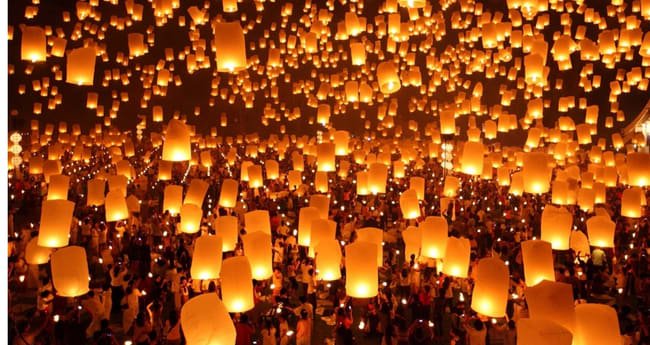
Loy Krathong
Loy Krathong takes place on the night of the full moon of the 12th month of the Thai lunar calendar. During the festival, many Thai communities float small lantern boats of offerings as tokens of gratitude toward the Goddess of Water and to seek her forgiveness.
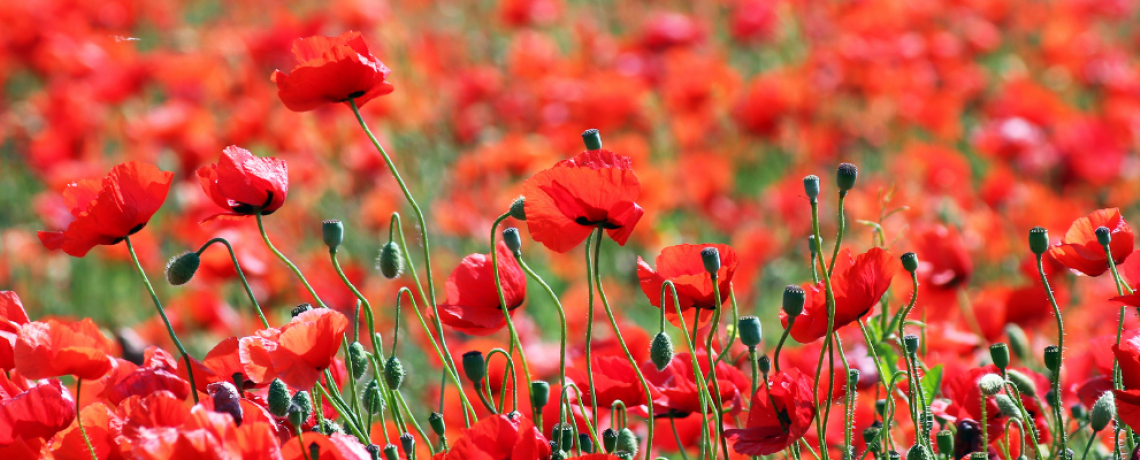
Remembrance Day
Remembrance Day is a memorial day observed in Commonwealth member states. This day marks the anniversary of the armistice that ended the First World War (1914-18). Australians observe one minute’s silence at 11 am in memory of the millions who died or suffered in all wars and armed conflicts.

International Day for Tolerance
The United Nations’ annual International Day for Tolerance fosters mutual understanding among cultures and peoples.
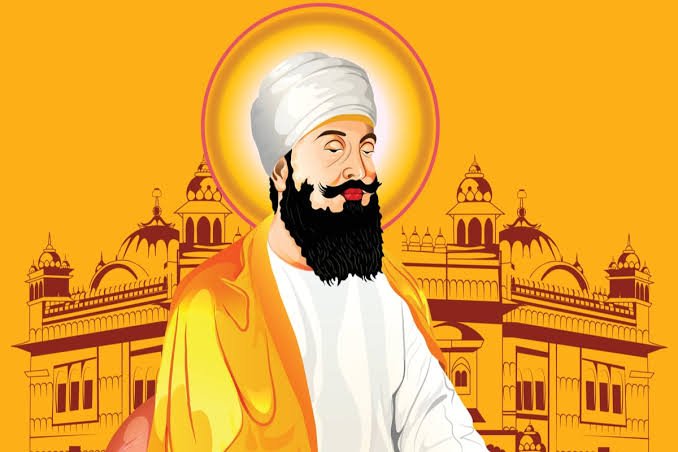
Martyrdom (Shahidi) of Guru Tegh Bahadur
On this day in 1675, Guru Tegh Bahadur, the ninth Guru, sacrificed his life to defend the religious freedom of another faith. This was a significant event in Sikh history that profoundly impacted the future direction of Sikhism.
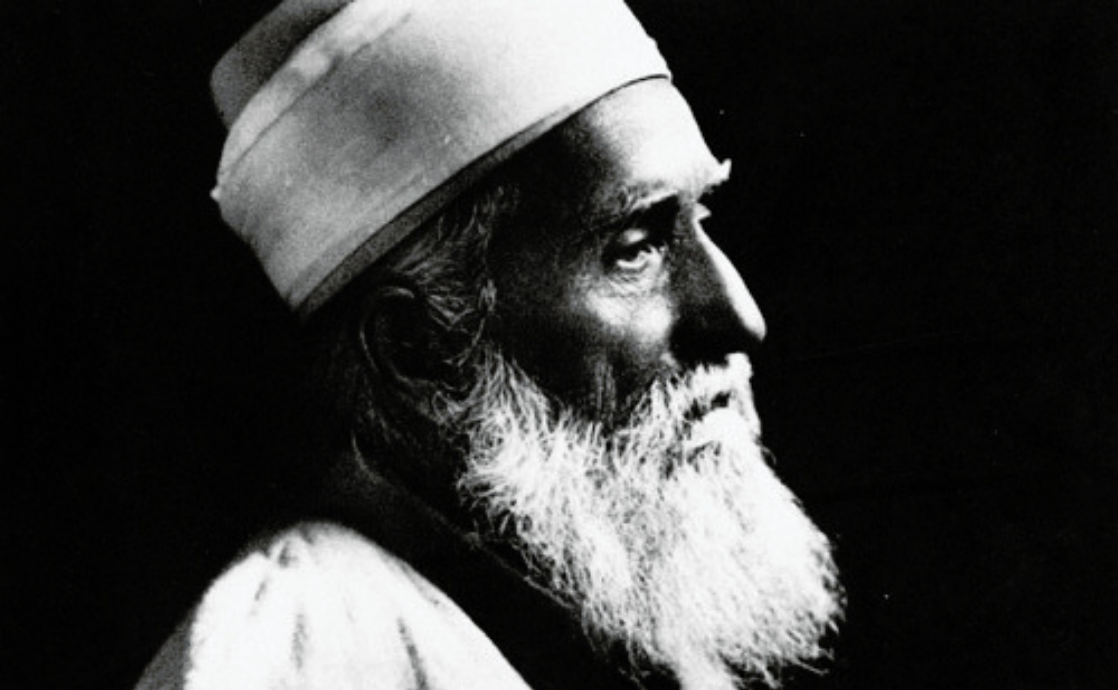
The Ascension of Abdu'l Baha
Commemorates the passing of Abdu’l-Bahá on 28 November 1921, the eldest son of Bahá’u’lláh (the Prophet-Founder of the Baha’i faith).
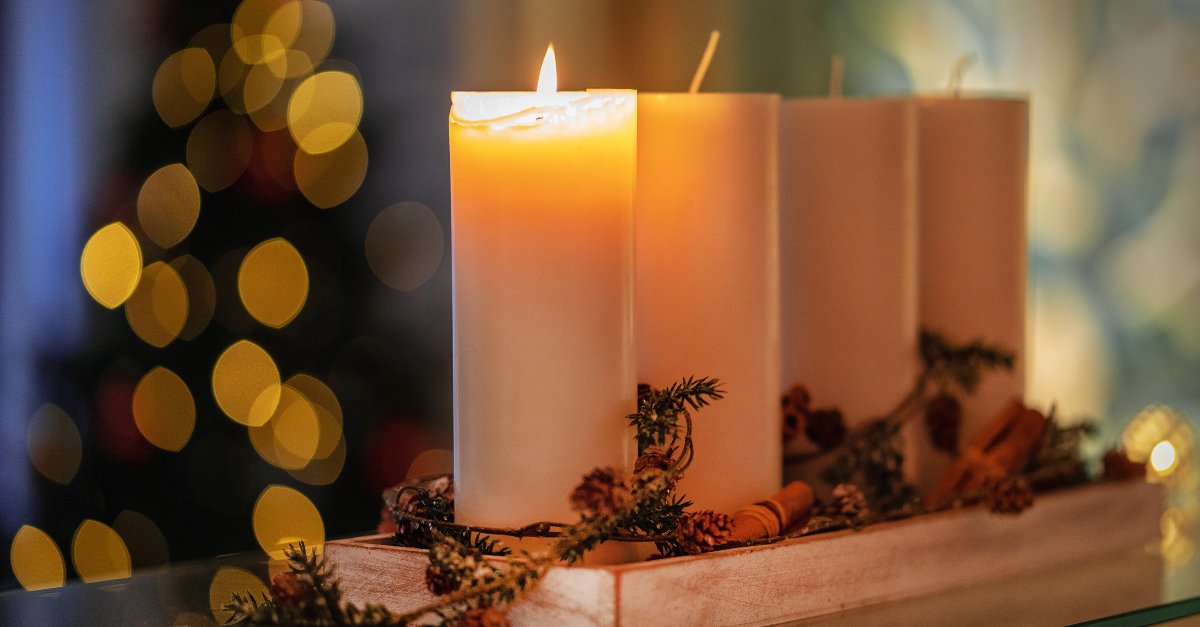
First Sunday of Advent
Christians celebrate Advent by lighting advent candles, displaying wreaths and hosting special ceremonies. Advent also anticipates the coming again to Earth of Jesus Christ.

St Andrew’s Day
St Andrew's Day is celebrated annually in Scotland on 30 November to commemorate St Andrew, the patron saint of Scotland since 1320. He is also the patron saint of Romania, Greece, Russia, Ukraine and Poland. The day is usually celebrated with traditional recitations, cuisine, dancing and singing.

Thailand National Day
In Thailand, National Day is celebrated on 5 December, the birth anniversary of the late King Bhumibol Adulyadej. The day is also considered Thai Father’s Day and World Soil Day.

Bodhi Day
Bodhi Day commemorates the day Buddha attained enlightenment under a Bodhi tree. It generally falls on the eighth day of the twelfth month of the lunisolar calendar. Mahayana Buddhists in China, Korea and Vietnam celebrate Lunar Bodhi day on the eighth day of the twelfth lunar month. In Japan, Bodhi Day follows the Gregorian calendar and is celebrated on 8 December every year.

Chanukah Festival of Lights
Chanukah or Hanukkah commemorates the recapture and rededication by the Jewish people of the Jerusalem Temple. The festival lasts eight days and nights, with an additional candle lit each night to symbolise the miracle of the cruse of oil that lasted eight days.

Christmas Day
Christmas is the Christian celebration of the birth of Jesus and is celebrated by many in Australia regardless of religious affiliation. Christmas lights and trees are displayed, carols are sung, and individuals come together to exchange gifts and spend time with family and friends.

New Years Eve
This date commemorates the arrival of a new year following the Gregorian calendar. New Year’s Eve is a time for communities, families and friends to celebrate the year past and the year to come.

New Years Day
New Year’s Day is the first day of the Gregorian calendar and is often celebrated with fireworks and parades. In Bunbury many people spend the day at our natural waterways and on the beach, picnicking and spending time with family and friends.

Feast of St Basil
St Basil is considered one of the great leaders and thinkers of the Orthodox Christian Church. In many Greek homes, a special cake is baked on the eve of St Basil’s Day with a gold or silver coin hidden inside. Similar traditions exist for Western Christian Churches.

Mahayana New Year
Buddhist New Year depends on the country of origin or ethnic background of the community. In Mahayana Buddhist countries, the New Year starts on the first full moon day in January.

Birthday of Guru Gobind Singh Ji
Sikh communities celebrate the birthday of the 10th Guru, Guru Gobind Singh (born in 1666).


Armenian Christmas Day
Some Christian traditions, including the Armenian Church, celebrate Christmas on this day.
The Holy Nativity Feast (Nativity of Christ)
Orthodox Churches that use the Julian Calendar celebrate Christmas on this day, with some traditions observing a week-long period of holidays from 1 January.

Thai Pongal
Thai Pongal is a multi-day Hindu harvest festival celebrated by Tamils in India and Sri Lanka. It is observed at the start of the month Thai according to the Tamil solar calendar. It is dedicated to the Hindu sun god Surya.

World Religion Day
Observed in over 80 countries, World Religion Day aims to foster interfaith understanding and harmony by emphasising the common elements underlying all religions.

Burns Night
Burns Night is annually celebrated in Scotland and commemorates the life of the poet Robert Burns (born on 25 January 1759). The day also celebrates Burns' contribution to Scottish culture.
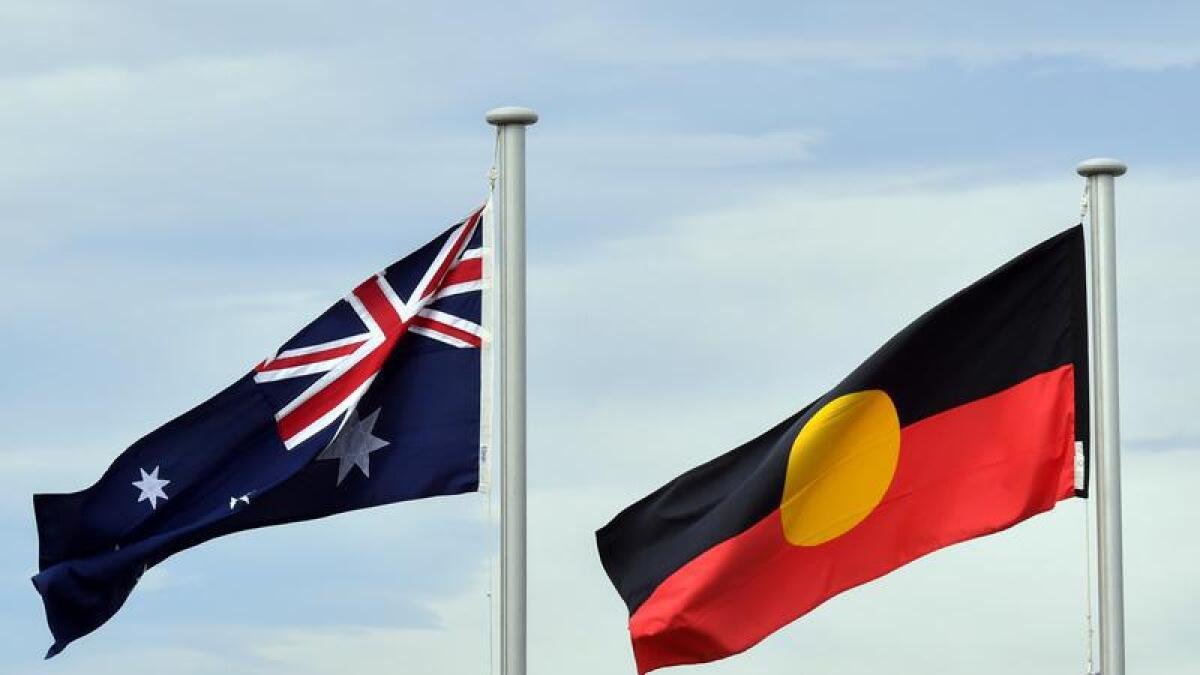
Australia Day
Australia Day provides an opportunity for all Australians to reflect, respect and celebrate. It is about acknowledging the contribution every Australian makes to our diverse nation. From our Aboriginal and Torres Strait Islander people who have been here for more than 65,000 years, to those who have lived here for generations, and those who have come in the waves of migration as new citizens.

International Holocaust Remembrance Day
Holocaust Remembrance Day is a memorial for the six million Jews killed by the Nazis between 1933 and 1945. Many people of Jewish and other faiths observe this day. It was designated by a United Nations General Assembly resolution on 1 November 2005. Many countries have instituted their own Holocaust Memorial Days, such as the UK's Holocaust Memorial Day (27 January), while others, such as Israel's Yom HaShoah, are observed at other times of the year.

National Multicultural Festival, Canberra
The National Multicultural Festival features local, national and international music, dance, food and creative arts.

Anniversary of the Apology to members of the Stolen Generations
On 13 February 2008, the Australian Parliament made a formal apology to members of the Stolen Generation.

Nirvana Day
An annual Buddhist festival that remembers the death of the Buddha when he reached Nirvana at the age of 80. Also known as Parinirvana Day

Ramadan
Ramadan is the most auspicious month in the Islamic Calendar, being the month the first verses of the Qur’an were revealed to the Prophet Muhammad.

Shrove Tuesday
Shrove Tuesday is the English name for what is known in some other countries as Mardi Gras (French for 'Fat Tuesday') or Carnival in Spanish and Portuguese countries, and is the last day before Lent for many Christian communities. Famous celebrations include the Brazilian Carnival in Rio De Janeiro and the New Orleans Mardi Gras. It is observed in many Christian communities through participating in confession and absolution, the ritual burning of the previous year's Holy Week palms, finalizing one's Lenten sacrifice, as well as eating pancakes and other sweets. Also known as Pancake Day

Seollal (Korean Lunar New Year)
Known in South Korea as Seollal, Lunar New Year typically lasts three days (the day before and after the New Year). Centred on charye—paying respect to elders—the new year is a time to remember a shared heritage and look forward to the future.

Chinese Lunar New Year - Year of the Horse
For Chinese communities across the world, the Lunar New Year is one of the most important holidays of the year. It is celebrated through a range of traditional customs, including ancestor worship, family gatherings, special foods and gift exchanges.

Tet (Vietnamese Lunar New Year—Year of the Cat)
Tet is considered the first day of Vietnam’s spring, a time marked by new beginnings. The Vietnamese community celebrates Tet with many customs, ancestor worship, family gatherings, special foods and gift exchanges. 2025 is the year of the Snake

Ash Wednesday (Lent begins)
Ash Wednesday is the first day of Lent in the Christian calendar. Lent involves 40 days of fasting and reflection that concludes with Easter.

Tibetan New Year (Losar)
Losar is a festival in Tibetan Buddhism. The holiday is celebrated on various dates depending on location (Tibet, Bhutan, Nepal and India). The holiday is a new year's festival, celebrated on the first day of the lunisolar Tibetan calendar, which corresponds to a date in February or March in the Gregorian calendar.

International Mother Language Day
The United Nations’ International Mother Language Day celebrates linguistic and cultural diversity.

South West Multicultural Festival
A Multi day festival held to celebrate community and diversity in the South West. This day will mark the main festival held at Bicentennial Square. It is a free event that will include multicultural food stalls, workshops, market stalls, music and dance.
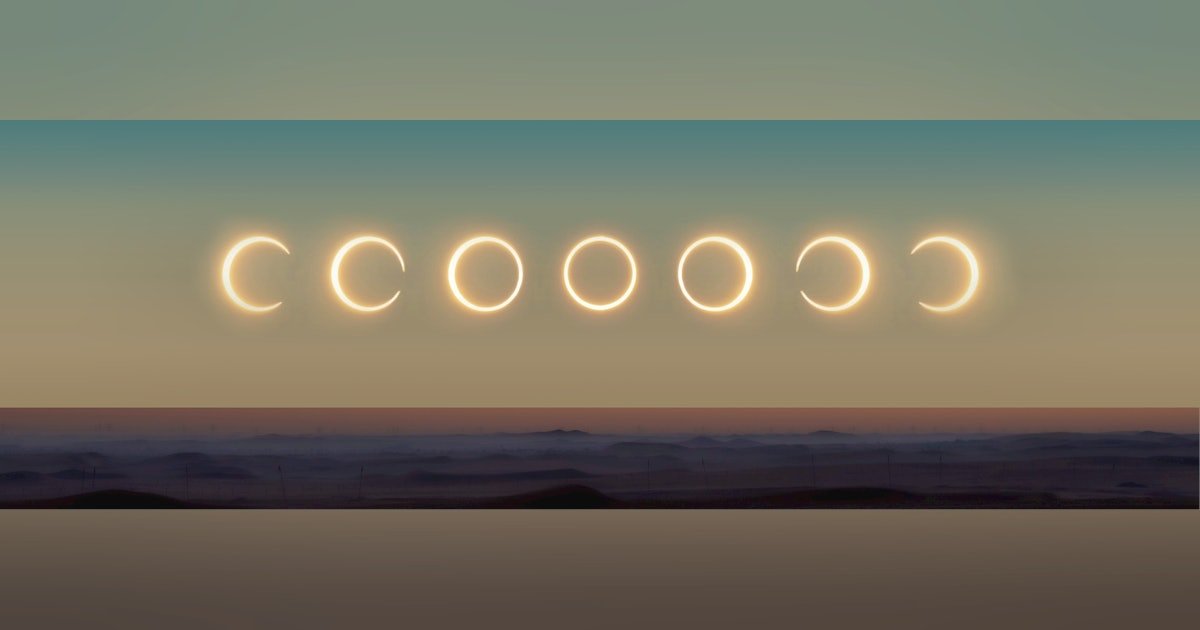
Naw-Ruz
This is the Baha’i New Year, marking the first day in the Baha’i calendar. The festival is usually observed with meetings for prayer and celebration, often combined with a feast at sunset before Naw-Ruz to signal the end of a19-day fast.

St David’s Day
St David is the patron saint of Wales. St David’s Day has been a national celebration for the Welsh community since the 18th century, featuring parades, festivities and singing.

Purim
Purim commemorates the time when the Jewish people living in the ancient Achaemenid Persian empire were saved from extermination by a courageous young Jewish woman named Esther and her uncle and adviser Mordechai.

Holi (Festival of Colours)
Purim commemorates the time when the Jewish people living in the ancient Achaemenid Persian empire were saved from extermination by a courageous young Jewish woman named Esther and her uncle and adviser Mordechai.

Makha Bucha Day
Makha Bucha is celebrated on the full moon day of the third lunar month in Cambodia, Laos, Thailand, Sri Lanka, and on the full moon day of Tabaung in Myanmar. Theravada Buddhists celebrate by going to temples with offerings of food and other items for the monks or nuns. Often there are solemn candlelight processions.

Harmony Week
Harmony Week celebrates the cohesive and inclusive nature of our diverse nation.

St Patrick’s Day
This day is Ireland’s National Day. St Patrick is the patron saint of Ireland and brought Christianity to Ireland in the early days of the faith.

National Close the Gap Day
National Close the Gap Day aims to raise awareness about the health and life expectancy gap between Indigenous and non-Indigenous Australians.

Eid al Fitr
The Islamic month of fasting, Ramadan, ends with the festival of Eid al Fitr. A celebratory meal breaks the fast, and good deeds have special significance during this time. Eid is also a time of forgiveness and making amends.

Norouz New Year
Norouz means ‘new day’ in Farsi and is a traditional festival of spring that has been celebrated for more than 3000 years. The ancient celebration of Norouz is shared by many peoples from Iran, Afghanistan, Iraq, and others.
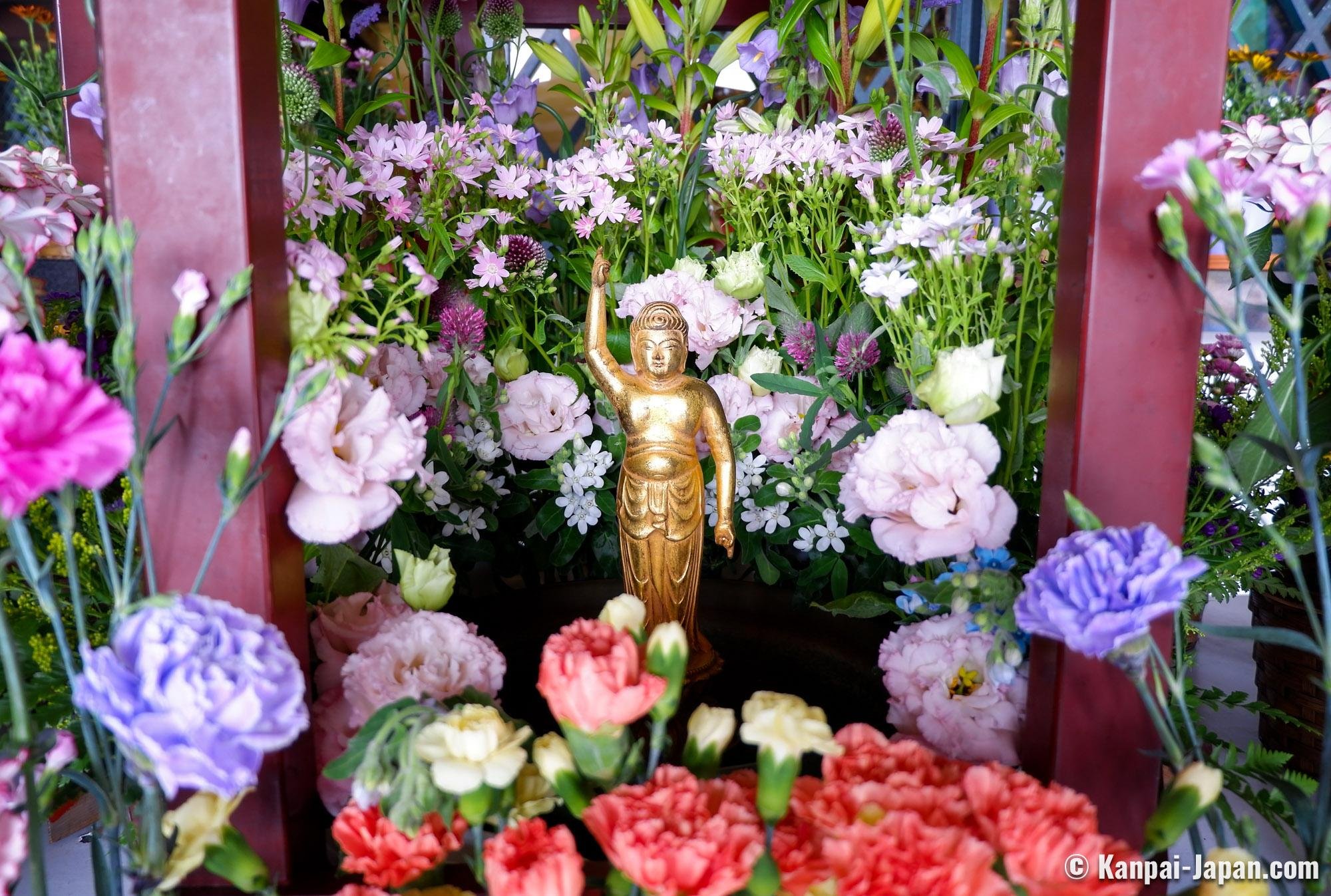
Hana Matsuri (Flower Festival)
In Japan, Buddha’s Birthday is celebrated, featuring the display of flowers at temples and the viewing of cherry blossoms throughout the country.

Palm Sunday
The final Sunday before Easter Sunday marks the beginning of Christian Holy Week and commemorates the story of Jesus’ arrival in Jerusalem before his crucifixion.

Kha b-Nisan (Akitu)
Assyrians and Chaldeans mark their New Year at the beginning of (Northern hemisphere) spring. It is the most important Assyrian national holiday, and its celebration is one of the many links between ancient and modern Assyrians. During this time, trees and flowers would begin to bloom. As such, the holiday was a symbol of revival—a major theme in ancient Assyrian mythology. Many Assyrians viewed this day each year as the “start of a new life.”

Hanuman Jayanti
Hanuman Jayanti is a Hindu religious festival that celebrates the birth of the Hindu God Hanuman, who is highly venerated throughout India and Nepal.

Theravada New Year
Theravada New Year is observed three days after the first full moon appears in April every year. The day marks Buddha's birth, death, enlightenment, and the start of the rainy season.
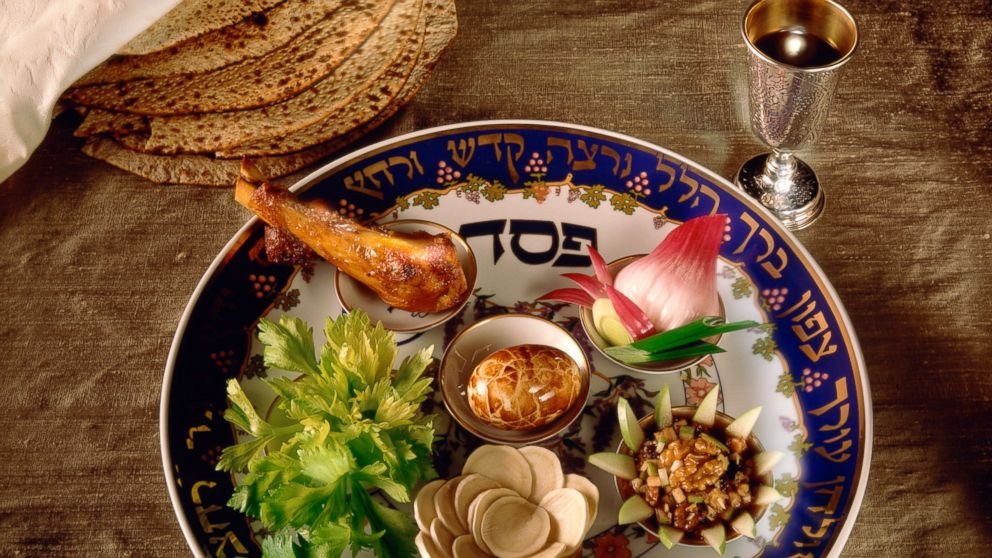
Passover
Passover is the first and most significant of the Jewish pilgrim festivals. It celebrates the redemption by God of the Jewish people from slavery in Egypt.

Pii Mai
Lao New Year is seen as an opportunity to let go of the past and embrace a promising new future. Water, which holds great symbolic value in Lao culture, is used to wash Buddha statues. Sand is brought to the temple grounds and is made into stupas or mounds, then decorated before being given to the monks as a way of making merit.
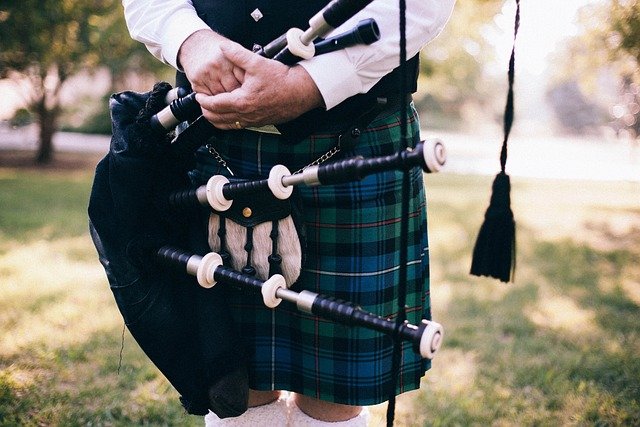
Brigadoon – The Bundanoon Highland Gathering
Brigadoon is an annual Scottish Highland themed gathering held in Bundanoon, where visitors witness or partake in Scottish performances and traditional games.

Hung Vuong Festival
A Vietnamese festival in honour of the Hung Vuong or Hung Kings. It commemorates the contributions of the Hung dynasty, who were the traditional founders of the nation and the first emperors of Vietnam.

Vesak Day
Is an important day of celebration for Buddhists around the world. Traditionally celebrated to commemorate the Buddha’s birth, enlightenment and death.

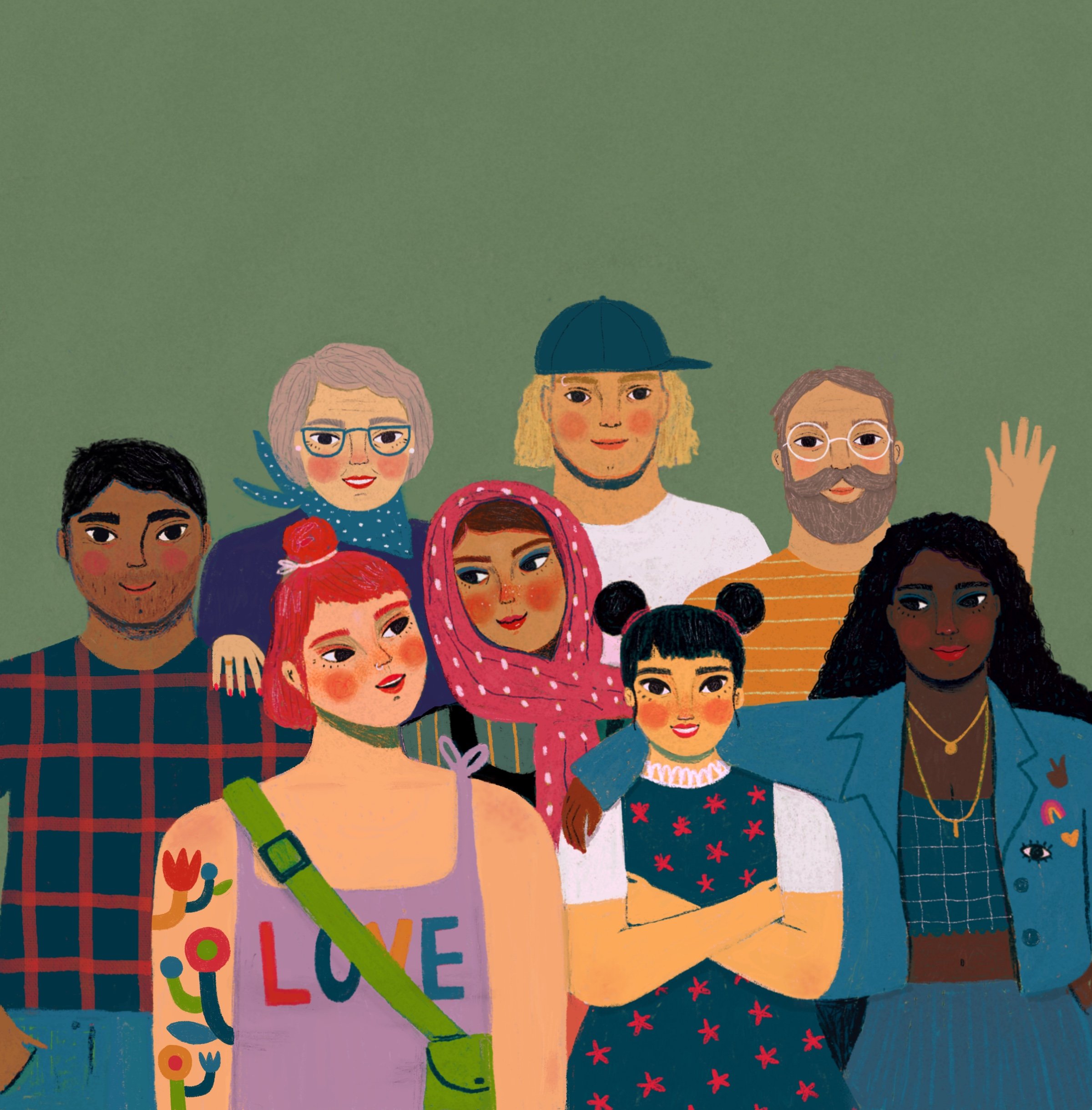
World Day for Cultural Diversity for Dialogue and Development
In 2001, UNESCO adopted the Universal Declaration on Cultural Diversity, and leads the celebration, highlighting not only the richness of the world’s cultures, but also the essential role of intercultural dialogue for achieving peace and sustainable development. 89% of all current conflicts in the world occur in countries with low intercultural dialogue which is why strengthening intercultural dialogue must be a priority.

Declaration of the Báb
Marks the anniversary of the Báb’s announcement of his mission in 1844. The Báb is a prophet and considered one of the founders of the Baha’i faith.

National Sorry Day
National Sorry Day acknowledges and raises awareness of the history and continued effect of the forced removal of Aboriginal and Torres Strait Islander people from their families, communities and culture.

Ascension of Baha’u’lláh
Commemorates the anniversary of the death in 1892 of Baha'u'lláh, the founder of the Baha'i faith.

National Reconciliation Week
Celebrates and builds on the respectful relationships shared by Aboriginal and Torres Strait Islander people and other Australians. Keep an eye open on all the events that will be popping up in your area, particularly around National Reconciliation Day on June 2.
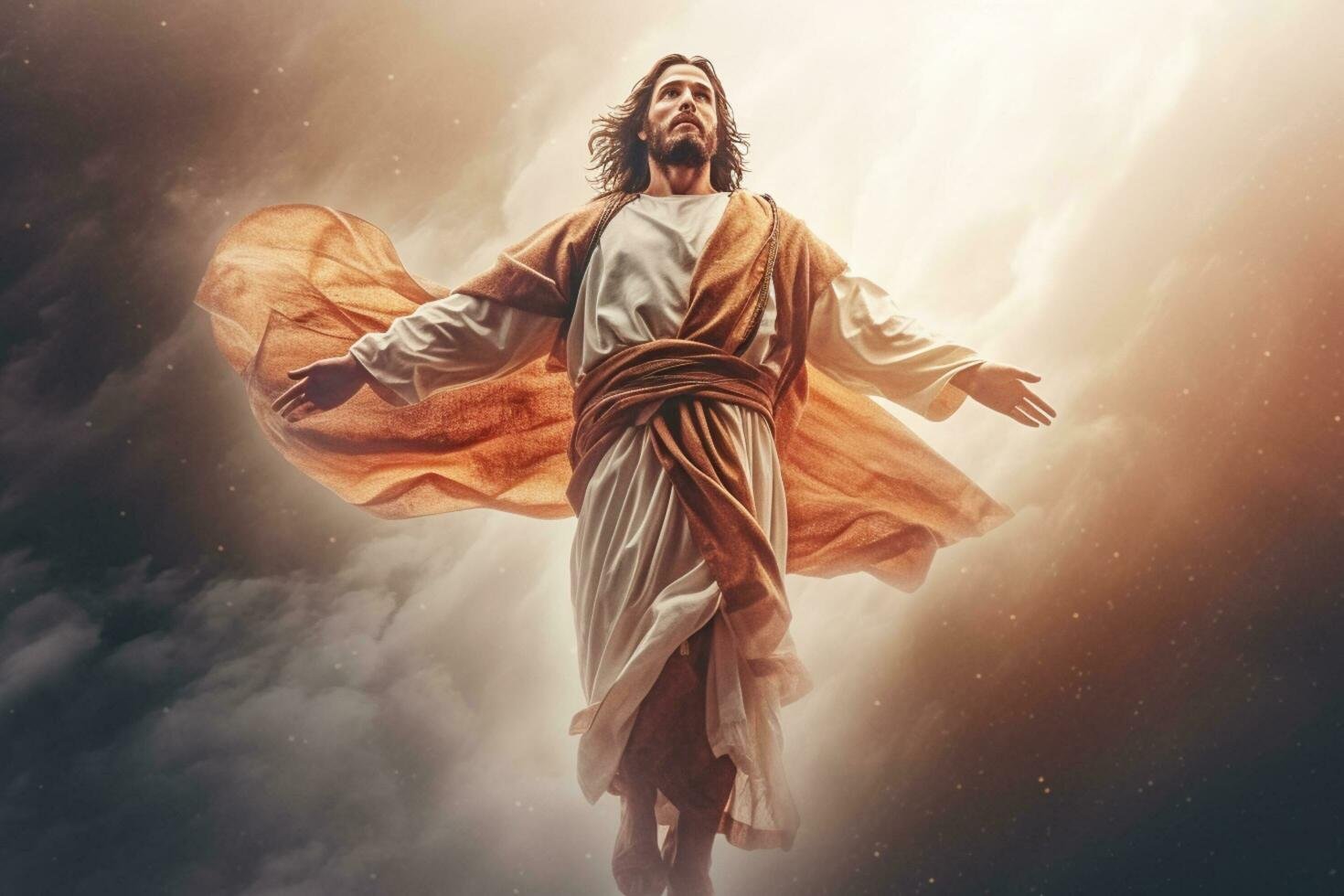
Ascension of Christ
A Christian holiday that commemorates Jesus Christ's ascension into heaven, according to Christian belief.

Ascension of Jesus (orthodox)
Ascension Day is the 40th day of Easter. It occurs 39 days after Easter Sunday. It is a Christian holiday that commemorates Jesus Christ's ascension into heaven, according to Christian belief.

Martyrdom of Guru Arjan Dev Sahib
Guru Arjan Dev was the fifth of ten Sikh Gurus and the first martyr of the Sikh faith. Sikhs remember those who have suffered for the faith.

Dragon Boat Festival
Duanwu Jie or Double Fifth Festival is one of China’s most prominent traditional festivals, celebrated in Taiwan, Malaysia, regions of Indonesia and Singapore on the fifth day of the fifth lunar month. Commemorating the death of the Chinese poet Qu Yuan.

Shavuot
A Jewish celebration of Moses’s descent from Mount Sinai with the Ten Commandments.

Mabo Day
The Australian High Court delivered the Mabo decision on 3 June 1992, providing legal recognition that Indigenous people have a special relationship with the land. Celebrating the life of activist Eddie Koiki Mabo.

Eid al Adha
The Eid al Adha means Feast of Sacrifice and commemorates the ordeal of Ibrahim who was asked to sacrifice his only son to prove his faith to Allah.

Pentecost
A festival where Christians celebrate the gift of the Holy Spirit. It is celebrated on the Sunday 50 days after Easter (the name comes from the Greek pentekoste, which means ‘fiftieth’)

International Tartan Day
A celebration of Scottish heritage commemorating the repeal of an English law in 1782 that banned the wearing of tartan.

Coming of the Light Festival
Celebrated by Torres Strait Islanders and commemorates the arrival of the London Missionary Society on Erub Island in the Torres Strait in 1871.

International Yoga Day
This is a global event celebrated to promote the practice of yoga and raise awareness about its numerous benefits.
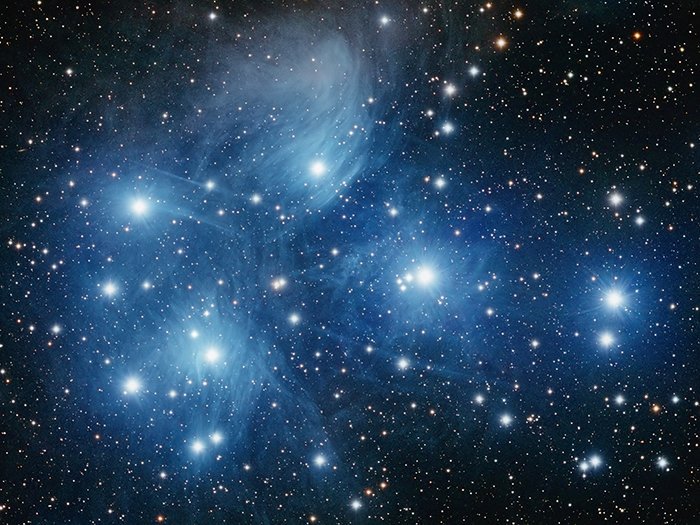
Matariki
A New Zealand holiday to celebrate the first rising of the Pleiades star cluster, which marks the beginning of the new year in the Māori lunar calendar.

World Refugee Day
Honours refugees and celebrates the strength and courage of people forced to flee their home country to escape conflict or persecution.

Refugee Week
Celebrated around the country, providing the opportunity to acknowledge the success of refugees and humanitarian entrants in Australian society.

The Hajj (Pilgrimage) to Mecca
On specific days of the Islamic month of Zu Al-Hijja, millions of Muslims from around the world congregate in the Prophet’s birthplace of Mecca in Saudi Arabia.

Anzac Day
Anzac Day is one of Australia’s most important commemorations. It marks the anniversary of the first major military action fought by Australian and New Zealand (ANZAC) forces during the First World War (1914-18) at Gallipoli.

St George’s Day
St George is the patron saint of England and one of the most venerated saints in the Anglican church.

Easter Monday
Easter Monday marks the resurrection of Jesus Christ three days after his crucifixion.

Ridvan
Ridvan is the most significant festival of the Baha’i faith and is celebrated over 12 days. The First Day of Ridvan is the most important of the Baha’i Holy Days. It is the day Baha’u’lláh declared his mission as a messenger of God in the Garden of Ridvan.

Easter Sunday
Easter is when Christians commemorate the resurrection of Jesus Christ following his death by crucifixion. It is the most significant event in the Christian calendar.

Holy Saturday
Holy Saturday is a Christian commemoration of the final day of Christ’s death.

Good Friday
Good Friday is a solemn Christian remembrance of the suffering and crucifixion of Jesus Christ.
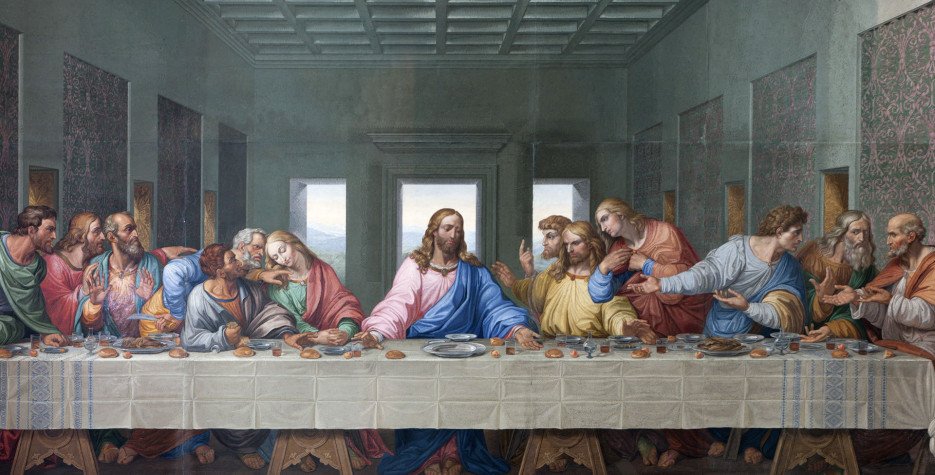
Maundy Thursday (Holy Thursday)
Maundy commemorates the washing of the feet and the Last Supper of Jesus Christ with the Apostles, as described in the Christian New Testament.

Pohela Boishakh
As the first day of the Bangla Calendar, people clean and decorate their houses , visit temples and pray for good fortune and prosperity.

Baisakhi
Baisakhi, also known as Vaisakhi, is an ancient harvest festival that marks the beginning of a new solar year and harvest season.

Choul Chnam Thmey
Khmer New or 'Choul Chnam Thmey' coincides with the traditional solar new year in several parts of India, Bangladesh, Nepal, Sri Lanka, Myanmar, Laos and Thailand. Traditionally it marks the end of the harvesting season when farmers enjoy the fruits of their labour before the rainy season begins.

Sinhalese and Tamil New Year
The beginning of the solar New Year is traditionally celebrated by Sinhalese and Tamils in Sri Lanka and India. This festival is known as Puthandu or Puthu-varusham among Tamil and Aluth Avurudda among Sinhalese.
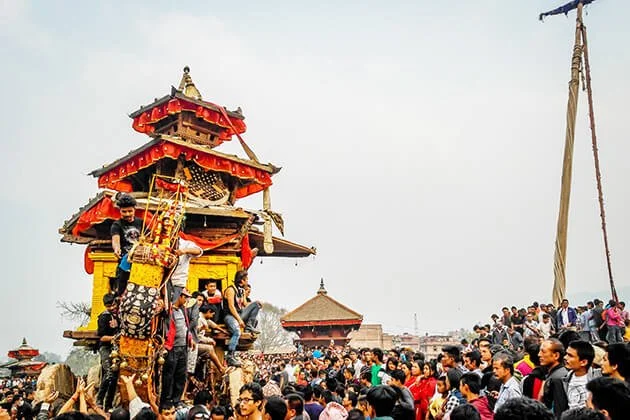
Navavarsha
Nepal relies upon more than one calendar so residents enjoy three New Year celebrations, on the Gregorian calendar, Tibetan New Year and Navavarsha. Navavarsha is the first day of Baisakh on the Bikram Sambat calendar.

Songkran (Thai New Year)
Songkran is the Thai New Year and Water Festival. Thai communities celebrate this festival with food, crafts and entertainment.

Thingyan (Burmese New Year)
Thingyan is the most significant annual festival on the Myanmar calendar. It marks the start of the New Year, the beginning of the Myanmar lunar calendar and celebrates life and rebirth.

Harmony Day Long Lunch
Join the Bunbury Multicultural Group for their inaugural Harmony Day Lunch. Everyone is invited to share their lunch in the heart of Bunbury’s CBD. This is in Victoria Street between Symmons and Wellington Street. There will be live music, information stalls and lots of opportunity to share stories and make friends. A place where ‘Everyone Belongs’
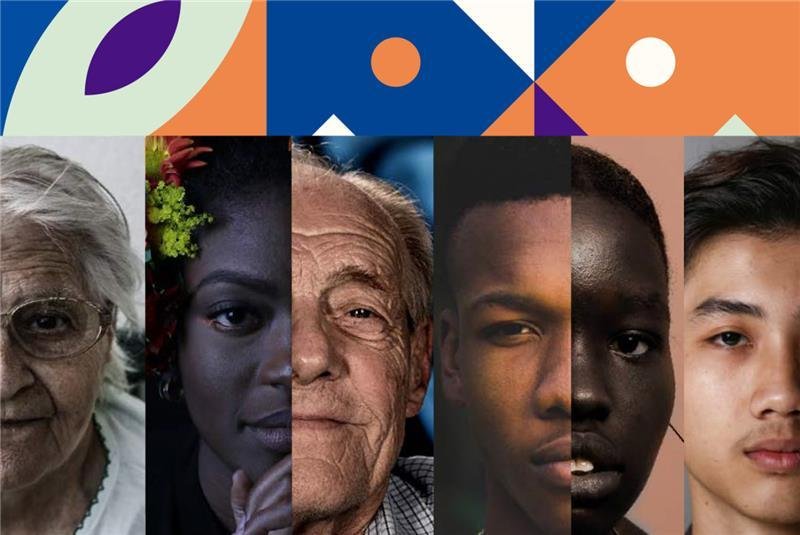
International Day for the Elimination of Racial Discrimination
The International Day for the Elimination of Racial Discrimination is observed annually. In 1960 police opened fire at a peaceful demonstration in Sharpeville, South Africa, against the apartheid pass laws; 69 people were killed, and 180 were injured.
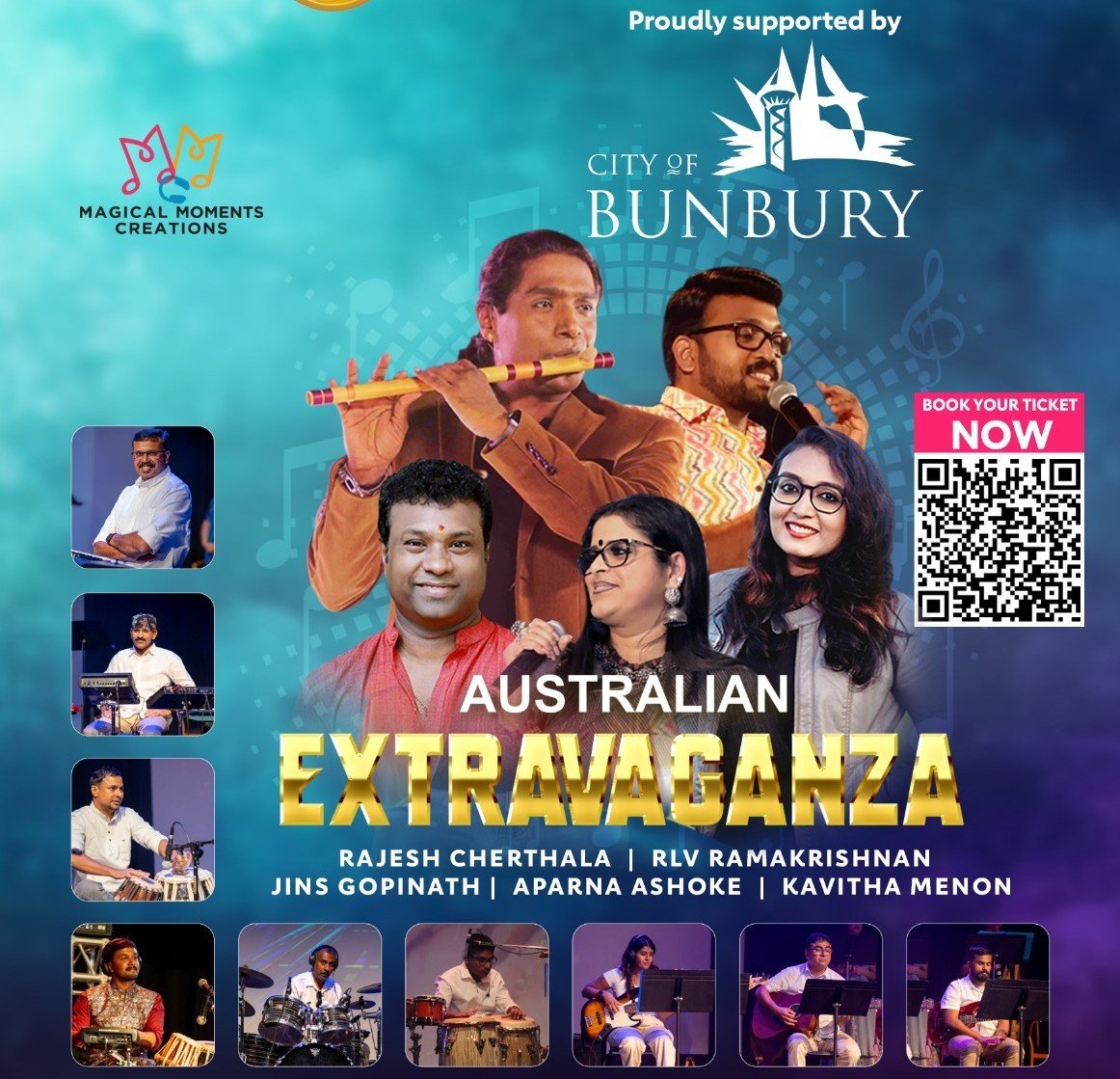
Australian Extravaganza – A Magical Musical Evening
Get ready for an unforgettable evening of music, dance, and cultural celebration with “Australia Extravaganza,” brought to you by Magical Moments Creations. This unique event showcases the incredible talents of world-renowned Indian artists and promises an evening filled with enchanting melodies, rhythmic beats, and mesmerizing performances.
Event Details:
• Date: 15 March 2025
• Time: Doors open at 5:45 PM
• Venue: Indian Community Centre
• Additional Shows: Bunbury – 14 March 2025, Geraldton – 16 March 2025
Featuring Performers:
• Rajesh Cherthala – Known for his captivating flute performances
• RLV Ramakrishnan – Talented percussionist and versatile artist
• Jins Gopinath – Skilled vocalist and percussionist
• Aparna Ashoke – Gifted musician, adding her unique flair

Property Investing- Free Seminar
FREE seminar on property investing, plus a special session for teenagers on managing money wisely
Event Details:
• Date: 1 March 2025
• Time: Doors open at 4.00 PM
• Venue: Dalyellup Community Centre, 6 Gosse Way, Dalyellup WA 6230

Bunbury Chinese Lantern Festival
Join the Bunbury community in celebrating and honoring Chinese culture across two evenings at the Friendship Garden, Cobblestone Drive Bunbury. Take your time to walk through our 600+ lantern trail, stopping to take a photo at the Giant Paper Peony Display,
Enjoy performances (including a new shadow puppet play performed by local school children) and a Snakes and Ladders game. You are welcome to bring your own picnic for a sunset dinner on the lawns, or partake in our Gourmet Asian Sausage Sizzle.

This Is Me (A BMG event)
Presented by the Bunbury Multicultural Group, our final This Is Me event for 2024 will be held on Bunbury's beautiful waterfront, Cedar By The Water. Here we will have the privilege of hearing the story of Mustafa Sayadi, the owner of this Lebanese Restaurant. Mustafa will be interviewed by ABC Radio's Stan Shaw, as we learn the story of an immigrant from Lebanon, finding his way to the remote city of Bunbury.
Event begins at 5.30pm and the informal interview will begin at 5.45pm. Light snacks will be provided.
This event is free but we ask you to register so we can cater appropriately. If you register then cannot make it, it is very important that you let us know

City of Bunbury Christmas Parade
This year's event includes the popular Street Parade and Carols Concert as well as activities happening throughout the day. Food trucks, market stalls, sideshow alley, Christmas decoration-making workshops and so much more are being planned. All of the fun will be taking place at Bicentennial Square and the Graham Bricknell Music Shell with the parade weaving its way through the Bunbury CBD.
Christmas in the City is part of our Summer Lovin' program of events!

SWIG Bunbury’s Diwali 2024
SWIG Bunbury Diwali 2024-Festival of Lights is a colourful celebration of Diwali with our multicultural population of Western Australia. The 13th edition of the Diwali event is hosted by South West Indian Group Inc (SWIG). We have a colourful mix of performances from classical Indian dances to Bollywood fusion dances, Gharba, Bhangra and Fire Dancers to entertain the attendees of all ages. The nominal ticket price includes entry and Indian Vegetarian Buffet Dinner catered by Spice Journey, at the end of the entertainment program.
SWIG Bunbury Diwali 2024 -Festival of Lights is a family friendly, Alcohol and Smoke Free Family Event.
We look forward to welcoming you all at our Diwali 2024 event. Please book well in advance to reserve your seats of choice.
SUBMIT YOUR OWN EVENT
Submit your own event to our team to go into our Events calendar. Please attach an image and provide as much information as possible.
